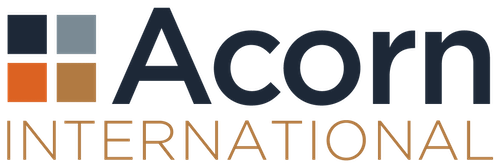ISSUE NO. 10: LESSONS FROM THE FIELD – PRACTICAL CHALLENGES TO APPLYING INTERNATIONAL STANDARDS AND GOOD PRACTICES FOR HUMAN RIGHTS (UPDATED)
Global companies and investors are facing a surge in new requirements and expectations for identifying, managing and transparently reporting on human rights risks. These include:
- national legislation
- responsible business standards and best practice guidance
- emerging UN binding conventions
- shareholder & customer demands for managing and reporting on human rights performance.
Much has been written recently to help businesses interpret and prepare to meet these new requirements. But when it comes to actually applying good practices in operations, businesses are finding that practical constraints require a new level of understanding and action that go beyond well-intentioned but untested policies, guidelines and commitments.
Acorn International has learned much about practical applications of human rights management programs from experience implementing and assessing these programs in operations worldwide, where conditions often do not follow textbook definitions and opportunities for applying commonly accepted best practices are made impractical by on-the-ground realities. In our recent series of summaries, we address three specific challenges faced when global best practice guidance meets local realities:
- What are some key “stressors” that can make application of best practices in managing human rights impractical, and how can we responsibly adjust?
- How far down into the supply chain are businesses reasonably expected to take responsibility for managing human rights?
- What separates conditions analogous to human slavery from conditions that simply do not follow fair labor practices, and what are our responsibilities for managing those grey areas?
Each summary looks at challenges in meeting human rights obligations when conditions in the field are out of the ordinary and require special judgment and alternative approaches. We offer our experience and recommendations for handling these challenges and invite further dialogue from our readers. Ultimately, we and our networks aim to continually sharpen our expertise in assessing evolving challenges and helping to assure that business activities are aligned and support human rights.
Business and Human Rights – Assurance Under Challenging Circumstances
July 2018
Our work in assessing and helping industry manage human rights challenges reveals a number of circumstances in which it is often difficult to ensure consistent, effective implementation and management of human rights consistent with best practice guidance. Three particular circumstances (“stressors”) stand out:
- Conflict or post-conflict environments (social risk)
- Political pressure and cultural reluctance (political risk)
- Demand spikes on suppliers (business risk)
In this paper, we look at how these circumstances make typical best practices impractical, and we provide recommendations for alternate means of meeting human rights obligations.
See full paper at https://acornintllc.com/issue-no-7-business-and-human-rights-assurance-under-challenging-circumstances/
Fair Labor Practices in the Supply Chain – How Far Down Do Your Responsibilities Extend?
September 2018
We observe that in recent years, pressure has increased for international industries—and their financiers—to manage fair labor practices in their supply chains. The question is no longer whether responsibility exists, but rather how far into the supply chain corporate accountability extends. Specifically, we examine:
- If assuring that a supply chain is free of unfair labor practices, does a company need to look beyond its primary suppliers to second or third level suppliers?
- Whether there are circumstances in which companies—if not required by guidance or legislation—would be wise to understand and/or actively manage fair labor risks beyond primary suppliers.
Our paper reviews four sources of guidance that help answer these questions: the International Finance Corporation’s (IFC) Performance Standard 2 Guidance Notes; IFC’s guidance on modern slavery and risk in the supply chain; the Organisation for Economic Cooperation and Development’s (OECD) Responsible Business Conduct Due Diligence Guidance, and recent legislation the US, UK and Australia.
See full paper at https://acornintllc.com/issue-no-8-fair-labor-practices-in-the-supply-chain-how-far-down-do-your-responsibilities-extend/
Modern Day Slavery: Gray Areas and Management Approaches
January 2019
In this summary, we test various definitions of “slavery” vs “fair labor practices” and highlight how to manage those conditions that may fall in between the two categories. Based on experience, we focus on labor conditions found in challenging supply chain work environments worldwide and consider:
- How to verify if such conditions can be considered to constitute “slavery” on one hand or “fair” on the other, and
- How to assure obligations are being met in the many cases for which conditions fall in between the two extremes.
See full paper at https://acornintllc.com/issue-no-10-modern-day-slavery-gray-areas-and-management-approaches/
_________________________________________________
Acorn International LLC delivers social and environmental risk management consulting services to the extractive industries and investors worldwide. We work with local partners in over 80 countries worldwide. Use of these local specialists is paramount, particularly in developing countries, where information is often scarce, second-hand, and unreliable. We look forward to engaging in continuous improvement for the industry and building capacity with our partners.
News & Notes

Acorn International
1702 Taylor St, Suite 200B
Houston, TX 77007, USA
1213 Purchase St
New Bedford, MA 02740, USA
